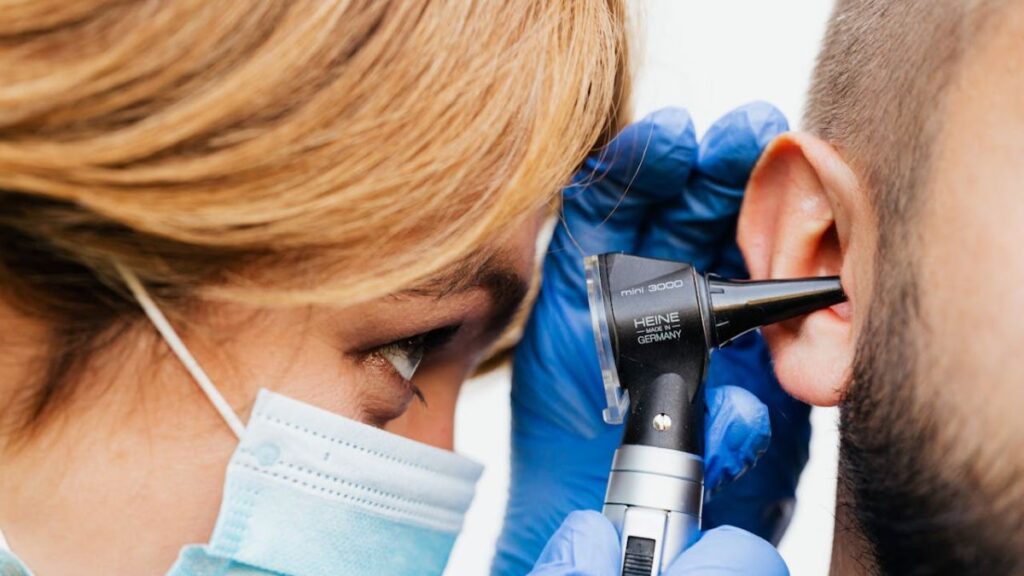Ear hygiene is a topic that is often overlooked, yet it plays a crucial role in maintaining overall ear health. Poor hygiene practices can lead to a range of issues, including ear infections, wax buildup, and other complications that can affect hearing. The simple act of caring for your ears can significantly reduce the risk of these problems, ensuring that your auditory system remains in top condition. Understanding the importance of ear hygiene, recognizing best practices, and addressing common misconceptions can empower individuals to take proactive steps toward better ear health.
Understanding Ear Anatomy and Common Issues
To appreciate the importance of ear hygiene, it’s helpful to understand the basic structure of the ear. The ear is divided into three main sections: the outer ear, middle ear, and inner ear. Each section plays a vital role in the hearing process. The outer ear collects sound waves and funnels them into the ear canal, while the middle ear amplifies these sounds, and the inner ear converts them into electrical signals that the brain interprets as sound.
Common issues that arise due to inadequate ear hygiene include infections, cerumen impaction, and even hearing loss. According to the World Health Organization, about 1.1 billion people globally suffer from hearing loss due to preventable causes, which emphasizes the necessity of proper ear care practices. Regular cleaning and maintenance are essential to avoid these issues.
Best Practices for Ear Hygiene
Maintaining proper ear hygiene involves several best practices that anyone can incorporate into their routine. First and foremost, never insert objects like cotton swabs or fingers into the ear canal, as this can push wax further in and may cause injuries to the ear. Instead, gently clean the outer ear with a soft cloth during your regular hygiene routine.
Additionally, consider scheduling regular check-ups with healthcare professionals who specialize in ear care. Professional ear wax removal is crucial for individuals prone to excessive earwax buildup. This service, available at various clinics, can ensure that wax does not accumulate to the point of causing infections. Such services are recommended by Toronto experts, as they provide safe and effective solutions for ear hygiene. Taking these preventive steps can help maintain optimal ear health and prevent potential complications down the line.
The Dangers of Neglecting Ear Hygiene
Neglecting ear hygiene can lead to several serious health complications. One of the most common issues resulting from poor ear cleaning practices is otitis externa, commonly known as swimmer’s ear. This condition occurs when bacteria or fungi infect the outer ear canal, leading to pain, discharge, and itching. According to the American Academy of Otolaryngology, approximately 2.4 million cases of swimmer’s ear occur annually in the United States, demonstrating the prevalence of this preventable condition.
Furthermore, chronic ear infections can lead to more severe health problems, including the risk of permanent hearing loss. Other potential consequences include balance issues, as infections can affect the inner ear organs responsible for maintaining equilibrium. Scheduling a hearing test after recurring ear infections is essential to detect early signs of hearing damage and prevent further complications. Regular tests not only assess your hearing health but also help identify underlying issues that could contribute to long-term auditory challenges.
Recognizing Symptoms of Ear Infections
Being aware of the symptoms associated with ear infections is crucial. Common symptoms include ear pain, drainage from the ear, reduced hearing, and a feeling of fullness in the ear. In children, signs may also manifest as irritability, pulling at the ear, and difficulty sleeping. If these symptoms arise, consulting a healthcare provider as soon as possible is vital to prevent complications.
Myths and Misconceptions About Ear Hygiene
Several myths surround ear hygiene that can lead to improper practices. One common misconception is that earwax is harmful and should be completely removed. In reality, earwax plays a protective role, serving as a natural barrier against dirt and bacteria. It’s only when the wax builds up excessively that it becomes problematic.
Another myth is that rinsing ears with water is a safe practice. This idea can actually lead to moisture being trapped in the ear, increasing the potential for infections. Understanding these myths can help people adopt more informed approaches to ear hygiene.
When to Seek Professional Help
Knowing when to seek professional help is crucial for maintaining ear health. If there are persistent symptoms of an ear infection or noticeable issues with hearing, it’s essential to consult a healthcare provider. Professionals can conduct examinations and provide treatments that are not achievable through home remedies.
In some cases, a simple wax blockage can masquerade as a more severe issue, leading to unnecessary anxiety. Regular check-ups can help prevent complications by addressing any developing problems early.
The Role of Professionals in Ear Care
Healthcare professionals play a significant role in maintaining ear hygiene. Audiologists and otolaryngologists specialize in diagnosing and treating ear-related issues. They can provide comprehensive care, including cleanings, assessments, and tailored treatment plans based on an individual’s needs.
Moreover, educational efforts from these professionals can inform the public about effective ear care practices. Through workshops and informational sessions, experts can empower individuals to adopt better hygiene habits, further preventing infections and promoting overall ear health.
Proper ear hygiene is essential for preventing infections and maintaining overall ear health. Implementing best practices, recognizing symptoms, and understanding when to seek professional help can significantly mitigate risks. By actively engaging in regular ear care, individuals can enjoy better hearing and protect their ears from various health complications.







